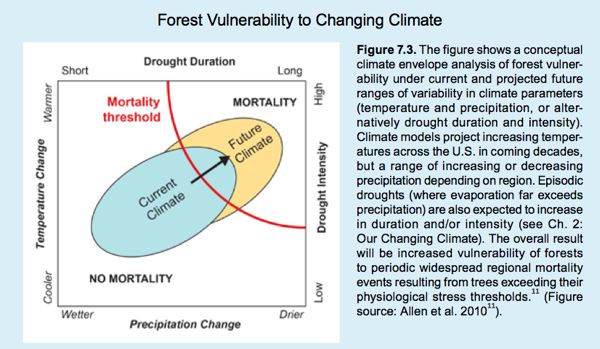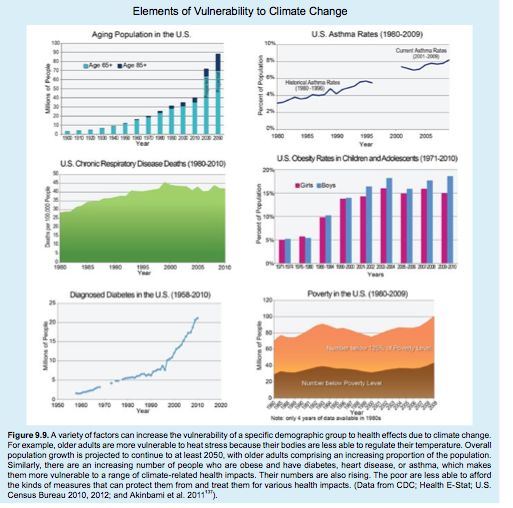Controversial “Forest Stewardship” Bill Vetoed By Christie Is Back
Serious Flaws and Lack of Safeguards Remain Unaddressed
How is it possible for any forestry initiative to not consider climate change? How can the most densely populated state not have urban forestry as a component of overall forest management?
[Update below]
The controversial “Forest Stewardship” legislation that was conditionally vetoed by Governor Christie last session is back for reconsideration on Monday by the Senate Environment Committee.
This session’s bill – see S2034 – is again sponsored by Chairman Bob Smith.
Most environmental groups oppose the bill because it would promote commercial logging on state lands and because it lacks effective safeguards. In fact, the original introduced version of the bill was titled “Forest Harvest” and it openly and unabashedly promoted commercial logging.
However, other conservation groups – all of whom would in some way benefit from the legislation – support the revised version of the original bill – despite the fact that the bill’s supporters include commercial logging interests – and feel that the private Forest Stewardship Council (FSC) certification process provides adequate safeguards.
But, DEP opposes the FSC role and Gov. Christie vetoed the bill because of the FSC role.
I have written multiple posts in strong opposition to the bill on multiple grounds I will not repeat here. This brief note is intended merely a heads up on Monday’s hearing.
However, I did write to Senators Smith (Chairman & sponsor) and Bateman, the ranking Republican, to urge that they consider amendments, as follows –
How is it possible for any forestry initiative to not consider climate change? How can the most densely populated state not have urban forestry as a component of overall forest management?:
Dear Chairman Smith:
I note that your “forest stewardship” bill, S2034, is up for consideration on Monday.
As you know, I oppose this bill for several reasons, which I will not rehash here.
However, as you also know, I previously suggested major changes to the original introduced version of the “forest harvest” bill, many of which you agreed to and adopted, that made the bill palatable to conservation groups and fostered compromise (recalling the old adage: “be careful what you ask for”).
So, with that disinterested spirit of improvement in mind, let me suggest further new amendments (in addition to those you’ve already rejected) to improve your bill.
These are all sound policy ideas, backed by lots of science, and implemented in many places in the US and internationally:
1. Recognize climate change as a major threat to forest ecosystems and require that climate change impacts, afforestation, and adaptation techniques be included in all forest management plans.
The bill as drafted merely suggests that carbon sequestration be “considered”. The single legislative finding on climate is far too narrow.
The scientific basis for this amendment would be the recent US National Climate Assessment, which documents and projects forest impacts in the northeast region. Read and download that Report here.
2. Recognize urban “heat island” and related energy, clean air, public health, environmental justice, and aesthetic benefits of an urban forestry program
The basis for these recommendations is provided here:
3. Establish an urban forestry program and set a time bounded numerical planting goal – 1 million trees in NJ’s cities.
Urban forestry is justified not only by science and public health, but by environmental justice, redevelopment, and aesthetic concerns.
The above are all new suggestions –
In conclusion, I could support this legislation if you could also amend the bill to:
a) subject Forest management Plans and forestry operations to all current regulatory standards and requirements that apply to development;
b) eliminate the Forest Stewardship Council;
c) delete the distribution of revenues to DEP, or what I have described as “perverse incentives” that promote logging;
d) ban commercial logging;
e) ban chemical herbicides
f) expand and formalize public participation requirements in the Forest Management Planning process.
g) include requirements for field monitoring and stronger enforcement provisions to create incentives to comply;
i) prohibit use of forest “products” for commercial energy recovery or consideration as “renewable energy” (residential firewood is OK)
I appreciate your consideration,
Bill Wolfe, Director
NJ PEER
[Update – National Climate Assessment – Chapter 7 – Forestry
Key Messages
- Climate change is increasing the vulnerability of many forests to ecosystem changes and tree mortality through fire, insect infestations, drought, and disease outbreaks.
- U.S. forests and associated wood products currently absorb and store the equivalent of about 16% of all carbon dioxide (CO2) emitted by fossil fuel burning in the U.S. each year. Climate change, combined with current societal trends in land use and forest management, is projected to reduce this rate of forest CO2 uptake
Key Messages
- Climate change threatens human health and well-being in many ways, including impacts from increased extreme weather events, wildfire, decreased air quality, threats to mental health, and illnesses transmitted by food, water, and disease-carriers such as mosquitoes and ticks. Some of these health impacts are already underway in the United States
- Climate change will, absent other changes, amplify some of the existing health threats the nation now faces. Certain people and communities are especially vulnerable, including children, the elderly, the sick, the poor, and some communities of color.
- Public health actions, especially preparedness and prevention, can do much to protect people from some of the impacts of climate change. Early action provides the largest health benefits As threats increase, our ability to adapt to future changes may be limited.
- Responding to climate change provides opportunities to improve human health and well-being across many sectors, including energy, agriculture, and transportation. Many of these strategies offer a variety of benefits, protecting people while combating climate change and providing other societal benefits.



Pingback: cuanto cuesta la nueva camiseta de espa?a
Pingback: herbalistic.net
Pingback: discount yoga wear
Pingback: messi t shirts online india
Pingback: neues trikot real madrid 2012
Pingback: camisa inter reebok 2011
Pingback: commercial blenders
Pingback: www.innovationwireless.com
Pingback: baby barcelona football kit
Pingback: fitflop sales
Pingback: wireless clocks
Pingback: Ray Ban Sunglasses Store Online - 90%OFF
Pingback: cartier bracelets
Pingback: michael kors online
Pingback: playera de cristiano ronaldo autografiada
Pingback: lien utile
Pingback: lewandowski trikot bayern
Pingback: camisetas athletic bilbao tailandia
Pingback: nueva camiseta del inter de milan 2012
Pingback: tom brady jerseys hat
Pingback: nike manchester united training shirt junior
Pingback: ray ban shop
Pingback: fitflop shoes
Pingback: bvb trikot modell
Pingback: 高品質スーパーコピーブランド専門通販店【XCOPY88質屋】
Pingback: Voir ici
Pingback: messi argentina shirt youth
Pingback: ray ban aviator carbon fibre
Pingback: camiseta blanca del milan 2012
Pingback: tottenham trikot 2014
Pingback: J'ai pensé à ce sujet
Pingback: focus t25
Pingback: new real madrid kit 2013 14
Pingback: new inter milan kit
Pingback: jersey baru chelsea home dan away
Pingback: liverpool fc kit next season
Pingback: camiseta liverpool mercadolibre
Pingback: Men's Nike San Francisco 49ers 38 Dashon Goldson Elite Red Team Color Super Bowl XLVII NFL Jersey
Pingback: En cliquant ici
Pingback: Cet article
Pingback: michael kors outlet
Pingback: camiseta inter de porto alegre
Pingback: Voici les conclusions
Pingback: lien du site
Pingback: Déclaration officielle
Pingback: camiseta ronaldo corinthians comprar
Pingback: arsenal home shirt junior
Pingback: camisetas historicas del atletico de madrid
Pingback: Accédez
Pingback: Regardez ce site